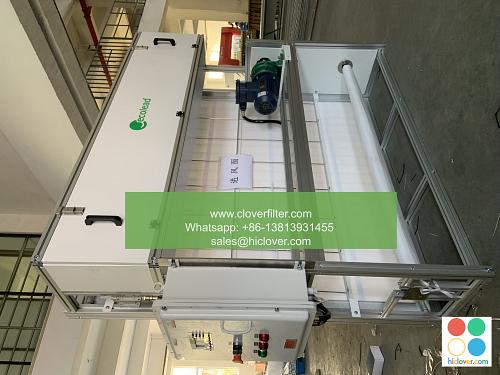Cleanroom Air Filtration Systems for BD Syringe Production in Nebraska

The production of medical devices, such as BD syringes, requires a controlled environment to ensure the quality and integrity of the final product. In Nebraska, where many pharmaceutical and medical device manufacturing facilities are located, cleanroom air filtration systems play a vital role in maintaining a sterile and particle-free environment. This article will highlight the importance of cleanroom air filtration systems in BD syringe production, discuss various application areas, and explore the benefits of implementing these systems in Nebraska-based manufacturing facilities.
Airborne Contamination Control and Cleanroom Design
Cleanroom air filtration systems are designed to remove airborne contaminants, such as particulate matter, bacteria, and viruses, from the air. These systems are critical in preventing contamination and ensuring the quality of BD syringes and other medical devices. In Nebraska, where the pharmaceutical and medical device industry is a significant contributor to the state’s economy, cleanroom air filtration systems are essential for maintaining a competitive edge in the global market.
Application Areas for Cleanroom Air Filtration Systems
Cleanroom air filtration systems have various application areas in BD syringe production, including:
* Syringe Filling and Packaging: Cleanroom air filtration systems ensure that the air in the filling and packaging area is free from contaminants, preventing microbial contamination and ensuring the quality of the final product.
* Component Manufacturing: Cleanroom air filtration systems are used in the manufacturing of syringe components, such as needles and plungers, to prevent contamination and ensure the quality of the components.
* Quality Control and Testing: Cleanroom air filtration systems are used in quality control and testing areas to ensure that the air is free from contaminants, allowing for accurate and reliable testing results.
HEPA and ULPA Filters: The Backbone of Cleanroom Air Filtration Systems
High-Efficiency Particulate Air (HEPA) and Ultra-Low Penetration Air (ULPA) filters are the backbone of cleanroom air filtration systems. These filters are designed to capture 99.97% of particles as small as 0.3 microns, ensuring that the air in the cleanroom is free from contaminants. In Nebraska, where many manufacturing facilities require high levels of air cleanliness, HEPA and ULPA filters are essential for maintaining a particle-free environment.
Benefits of Implementing Cleanroom Air Filtration Systems
The implementation of cleanroom air filtration systems in BD syringe production facilities in Nebraska offers several benefits, including:
* Improved Product Quality: Cleanroom air filtration systems ensure that the air is free from contaminants, preventing contamination and ensuring the quality of the final product.
* Increased Efficiency: Cleanroom air filtration systems reduce the risk of contamination, minimizing the need for rework and increasing production efficiency.
* Regulatory Compliance: Cleanroom air filtration systems help manufacturing facilities comply with regulatory requirements, such as those set by the FDA and ISO.
Conclusion
In conclusion, cleanroom air filtration systems are a critical component of quality control and contamination prevention in BD syringe production facilities in Nebraska. The implementation of these systems ensures a particle-free environment, preventing contamination and ensuring the quality of the final product. With various application areas and benefits, cleanroom air filtration systems are essential for maintaining a competitive edge in the global market and complying with regulatory requirements.

